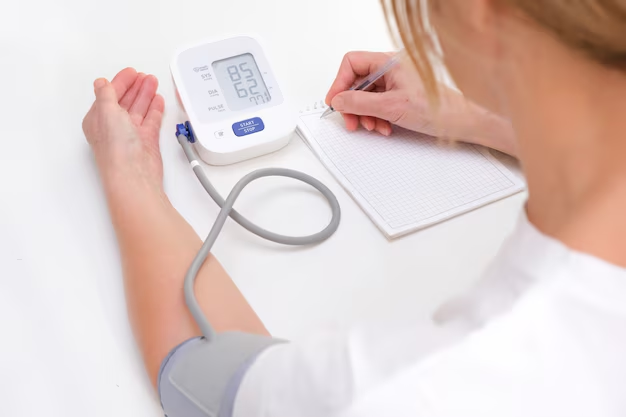Your Guide to What Is Hypertension Disease
What You Get:
Free Guide
Free, helpful information about HyperTension FAQ and related What Is Hypertension Disease topics.
Helpful Information
Get clear and easy-to-understand details about What Is Hypertension Disease topics and resources.
Personalized Offers
Answer a few optional questions to receive offers or information related to HyperTension FAQ. The survey is optional and not required to access your free guide.
Understanding Hypertension: Key Insights into High Blood Pressure
Hypertension, commonly known as high blood pressure, is a chronic medical condition where the force of the blood against the artery walls is consistently too high. Over time, this increased pressure can lead to severe health problems, including heart disease, stroke, and kidney failure. Often dubbed "the silent killer," hypertension frequently presents no obvious symptoms, making it crucial for individuals to have their blood pressure checked regularly.
What Causes Hypertension?
There are two primary types of hypertension: primary (essential) hypertension and secondary hypertension.
Primary Hypertension: This form develops gradually over many years without an identifiable cause. It's the most common type and is influenced by factors such as genetics, aging, and lifestyle choices like physical activity and diet.
Secondary Hypertension: This type is caused by an underlying condition, such as kidney disease, adrenal gland problems, or certain medications. Secondary hypertension tends to appear more suddenly and be more severe than primary hypertension.
Risk Factors
While anyone can develop high blood pressure, several factors increase the risk, including:
- Age: Blood pressure typically increases with age.
- Family History: Hypertension can run in families.
- Obesity: Being overweight forces the heart to work harder.
- Smoking: Nicotine raises blood pressure and damages artery walls.
- Diet: High salt intake can raise blood pressure levels.
- Lack of Physical Activity: Inactivity contributes to weight gain and high blood pressure.
Why Is Managing Hypertension Important?
Uncontrolled hypertension can lead to serious health complications, including:
- Heart Attack or Stroke: High blood pressure can cause hardening and thickening of the arteries (atherosclerosis).
- Aneurysm: Increased pressure in the arteries can cause blood vessels to weaken and bulge.
- Heart Failure: The heart works harder than necessary, which can lead to an enlarged heart muscle.
Taking Action: Government Aid and Financial Assistance
Managing hypertension often involves lifestyle changes, medications, and regular medical appointments, all of which can incur costs. Thankfully, there are financial resources and programs available:
- Medicare and Medicaid: These programs offer financial assistance for medical care, including doctor visits and medications.
- Community Health Clinics: Often provide affordable, or even free, health services, including blood pressure monitoring and consultations.
- Pharmaceutical Assistance Programs: Many drug companies offer plans to help cover medication costs for those in financial need.
Additional Resources: Beyond Medical Management
For those juggling hypertension care with financial challenges, exploring educational and financial tools can be a significant help:
- Debt Relief Options: If medical bills are accumulating, consider consulting with a financial advisor about debt consolidation or relief programs.
- Credit Card Solutions: Some providers offer special plans with lower interest rates for medical costs.
- Educational Grants: If balancing medical expenses with education, explore grants and scholarships designed for those with specific health conditions.
Assistance and Resources at a Glance
- 💊 Medicare & Medicaid: Offers medical coverage assistance.
- 🏥 Community Health Clinics: Affordable health services.
- 💵 Pharmaceutical Assistance: Help with medication costs.
- 📚 Educational Grants: Aid for education alongside health challenges.
- 💳 Credit Solutions: Special plans for medical expenses.
- 💡 Debt Relief: Options to manage and reduce medical debt.
By understanding and addressing hypertension, individuals can significantly improve their health while utilizing available resources to manage costs and maintain their quality of life. Regular check-ups and effective use of financial aid can ensure a healthy and financially secure future.
What You Get:
Free HyperTension FAQ Guide
Free, helpful information about What Is Hypertension Disease and related resources.

Helpful Information
Get clear, easy-to-understand details about What Is Hypertension Disease topics.

Optional Personalized Offers
Answer a few optional questions to see offers or information related to HyperTension FAQ. Participation is not required to get your free guide.


Discover More
- a 66 Year Old Female With a History Of Hypertension
- Are Eggs Bad For Hypertension
- Are Eggs Good For Hypertension
- Are Endocrine Disorders Causing Hypertension Rare
- Can Adderall Cause Hypertension
- Can Alcohol Cause Hypertension
- Can Allergies Cause Hypertension
- Can Anemci People Get Hypertension
- Can Anemia Cause Hypertension
- Can Antibiotics Cause Hypertension
